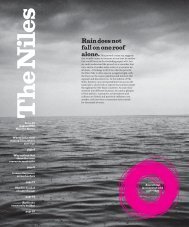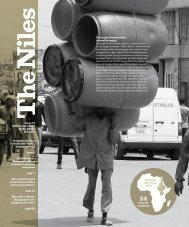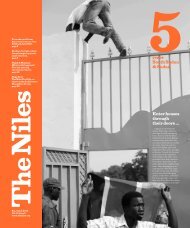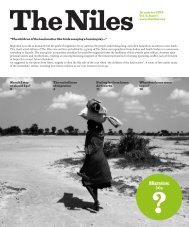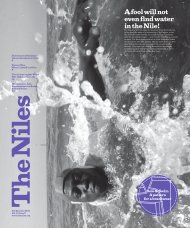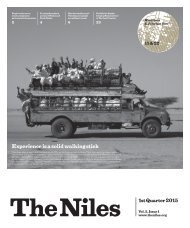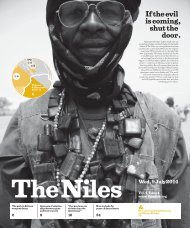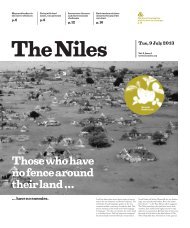When deeds speak, words are nothing
Speaking about sustainable development is easy. Acting sustainably is another matter. And now the evidence is unequivocal: Mankind’s impact on nature is causing the climate to change rapidly and drastically, threatening the environment and the very resources we need to survive. Aware that humanity is careening close to the edge, The Niles correspondents set out to explore where and how people in the Nile Basin region rethink. So much of their findings for now: We are an endlessly innovative species. Cooperation is our superpower. When deeds speak, words are nothing.
Speaking about sustainable development is easy. Acting sustainably is another matter. And now the evidence is unequivocal: Mankind’s impact on nature is causing the climate to change rapidly and drastically, threatening the environment and the very resources we need to survive. Aware that humanity is careening close to the edge, The Niles correspondents set out to explore where and how people in the Nile Basin region rethink. So much of their findings for now: We are an endlessly innovative species. Cooperation is our superpower. When deeds speak, words are nothing.
You also want an ePaper? Increase the reach of your titles
YUMPU automatically turns print PDFs into web optimized ePapers that Google loves.
Historically, the Zabaleen were farmers
from Assiut in Upper Egypt who migrated
to Cairo in the 1940s to escape poor harvests.
The Wahiya, people from Egypt’s Western
Desert, asked the Zabaleen to join them in
Cairo’s garbage-collection trade, who have
successfully carved out a niche for themselves.
Since the 1940s, hundreds of women
have been raised in the Zabbaleen community
and helped their families collect garbage.
Over 20 years, the Association for the
Protection of the Environment (APE) has
worked with Egypt’s Zabaleen. They run
workshops supporting and teaching women
how to recycle different materials.
Hyena Abide is 36 years old and works
as a carpet maker at APE, recycling fabric
leftovers. “I’ve worked here for 20 years, and
I hope to take a break because my work is
very difficult. Although, I like the part where
I arrange different colours of fabric,” she says.
Continued on page 16 15









